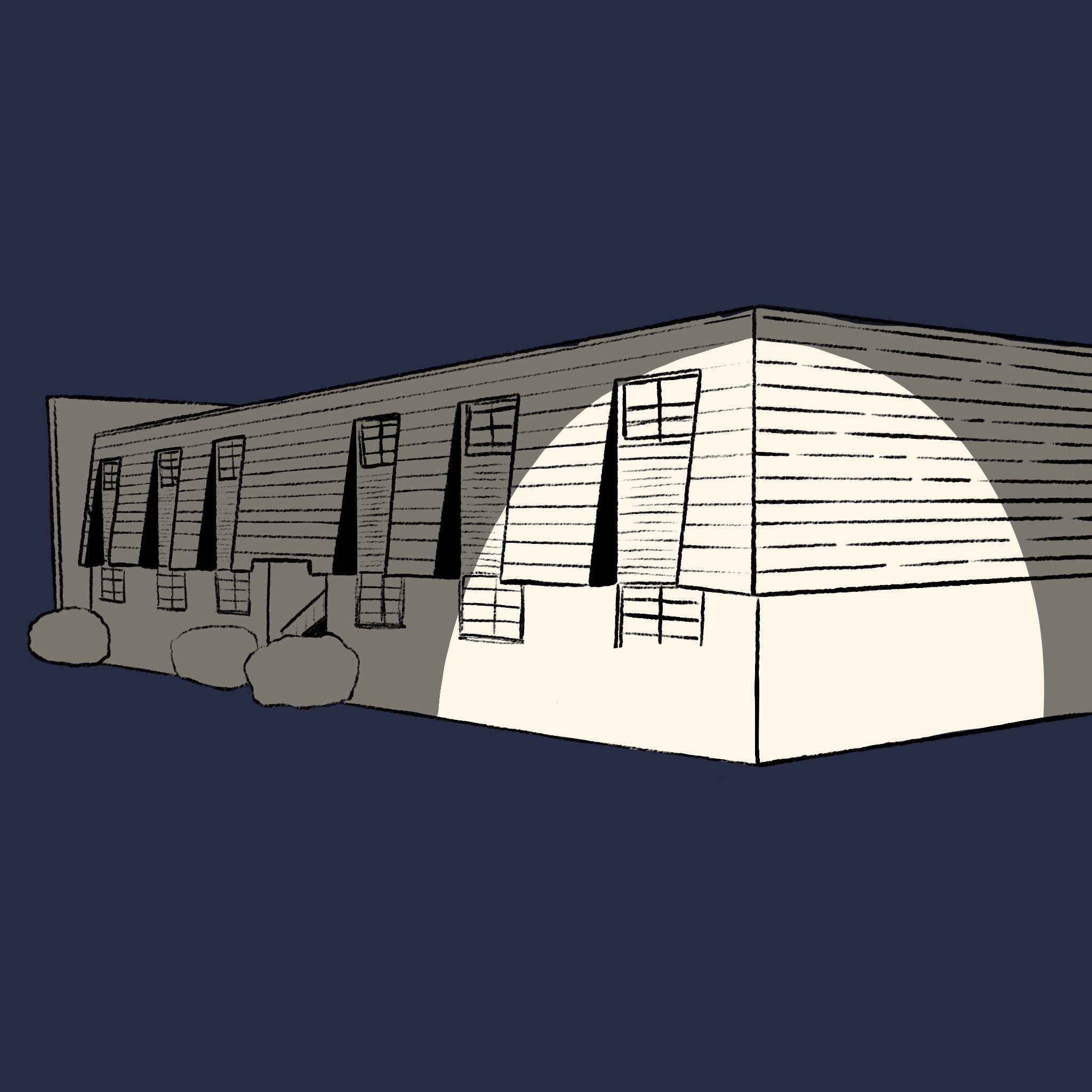Editor’s note: This is the second story in a two-part series about how two cities—Grants Pass, Oregon and Boise, Idaho—are responding to the recent Supreme Court case ruling that camping bans don’t violate the Constitution. Read part one here.
Back in 2018, Boise was the subject of an influential appeals court ruling that found camping bans are unconstitutional if someone has no other options but to sleep outdoors.
That ruling set the groundwork for a similar lawsuit and decision against Grants Pass, Oregon, which the city successfully challenged in the Supreme Court last month.
After the ruling in City of Grants Pass v. Johnson, some communities are creating new bans or preparing to rev up camp sweeps. In Grants Pass, the city is developing a new ban that’s in line with Oregon restrictions on camping ban laws.
In Boise, with a population of about 250,000, the city’s housing-focused leadership isn’t interested in updating its camping ban policy, opting to stay the course with years of steady investments in homelessness prevention, services and affordable housing.
Denise Caruzzi, director of outreach for the Boise/Ada County Homeless Coalition, said those efforts gained community support, in part, due to rapidly rising rents during the pandemic. According to Zillow, the median rent in Boise is $1,800, a nearly 80% jump from $1,002 in 2019. Caruzzi said housing costs have strained many Boise residents, from young adults who lost their homes to older renters who couldn’t afford rent hikes on fixed incomes.

That led residents to think more about the community’s future, she said.
“Many cities, including Grants Pass, are working on what’s today?” Caruzzi said. “What makes today better? And often ‘better’ means, can we make problems invisible? It’s much harder to get people behind a policy saying, this might be a little hard and a little painful, but we’re going for 10 or 20 years from now.”
Boise mayor: Criminalizing homelessness doesn’t address it
In 2018, the Ninth Circuit Court of Appeals ruled in Martin v. City of Boise that prosecuting someone for sleeping on sidewalks violated the Eighth Amendment if the person didn’t have an alternative for shelter. In 2021, the city agreed in a settlement to not cite people under the ban if no shelter was available, and the Boise City Council approved an ordinance blocking citations against people who have been denied shelter because of their gender, sexual orientation, physical or mental health needs.
After last month’s Supreme Court ruling, Boise Mayor Lauren McLean said in a press release that the court’s decision wouldn’t change Boise’s approach to reducing homelessness. “Criminalizing homelessness has never, and will never, solve the problems associated with homelessness,” the release said. “We must address the root causes with proven strategies, like permanent supportive housing, that empower our residents to stay housed and thrive in their community.”
Jodi Peterson-Stigers is the executive director of Interfaith Sanctuary, which runs Boise’s only low-barrier shelter, a type of shelter that doesn’t require clients to be sober, attend religious programs or follow other rules that might deter them from receiving services. Since the Supreme Court ruling, Peterson-Stigers has worried nearby cities may approve new camping bans that could push their unsheltered residents into other communities, like Boise.
“Each city gets to make their own determination about how they’re going to look at their homeless situation,” she said. “Will that put more pressure on our city’s services if they decide they’re going to criminalize homelessness?”
[ Read more: Climate change is pushing up electricity prices. Solar energy could make bills more affordable ]
Peterson-Stigers said police sometimes ticket unsheltered people in Boise for offenses stemming from not having a home, like trespassing or having an open container.
“We’ve never nailed Martin v. Boise,” she said. “It’s always been a little bit hard to interpret because what does it mean for a shelter bed to either be available or unavailable? There are ways for people to interpret those decisions differently, and it’s always been a little muddy, which is I think where that workaround with the tickets comes from.”
Rev. Bill Roscoe is president and CEO of Boise Rescue Mission Ministries, which provides faith-based emergency shelter and other services for people experiencing homelessness. He said Martin v. Boise “left cities and municipalities in a place where they were subject to homeless camps springing up just about anywhere … and without any way to address that.”
He said he was disappointed in the mayor’s statement.
“I understand that some people are absolutely going to reject any opportunity to stay at a shelter,” Roscoe said, “and if that’s their choice, that’s their choice. But at the same time, I don’t think that they should have a right or privilege to throw up a camp on the lawn of the library, in the downtown business district or in a community park. It takes away from the rights of the people who use those places and who pay taxes for their property.”
The city council’s extension of a temporary shelter is part of Boise’s investment in strategies to reduce homelessness
For about the last five years, the city of Boise has focused heavily on housing. Last year, city councilors approved a zoning code update to allow for higher density and incentivize affordable housing development. The city has provided funding to about 10 affordable and permanent supportive housing projects that will bring about 1,200 housing units to the market by 2027, city data shows. Maureen Brewer, Boise’s housing and community development manager, said during a city council meeting earlier this month that the city also is forming a street outreach team to connect unsheltered people to services.
[ Read more: Rising rental fees are feeding evictions and homelessness ]
At that meeting, the city council approved a plan to keep open a temporary shelter at the Red Lion Hotel through September 2025. According to city data, the shelter has served almost 1,000 people in more than 300 households since its doors opened. About half of those served were families with children.
Since May 2020, the city has funded the shelter, and Interfaith Sanctuary has operated it. The shelter was initially focused on providing people with a safe spot to quarantine during the pandemic and went on to also serve families with children and medically fragile people, including those with chronic health conditions who need help with activities of daily living, like using the bathroom.
From its opening through spring 2025, the city projects the shelter will cost a total of about $7.9 million, 86% of which was covered by federal sources, including American Rescue Plan Act (ARPA) funding. Brewer said those additional six months would cost $463,000, which the city could partially cover with $200,000 in remaining ARPA funds.
Peterson-Stigers said that in the next few months, Interfaith Sanctuary will begin reducing use of the hotel and find housing and shelter options for people staying there. About 100 people, including about 50 kids, are staying at the shelter now, according to the nonprofit.
Interfaith Sanctuary and Rescue Mission are collaborating on case management for hotel residents and will transfer medically fragile people to Rescue Mission.
“The city has embraced its role as a funder of solutions, both short and long-term,” Brewer said during the city council meeting. “That said, there are households that need our help right now while we continue to bring long-term affordable housing online.”
How people’s stories can build community support for strategies to reduce homelessness
Interfaith Sanctuary recently began construction on a new shelter that is projected to open in October after the hotel shelter closes. To meet a growing need and build on its work at the temporary shelter, the new facility will serve families, older adults and medically fragile people.
Peterson-Stigers echoed the importance of both short and long-term strategies in reducing homelessness.
“That means the community has to buy into it, too,” she said. “I’m sure you’ve seen when someone’s trying to propose a shelter or affordable housing, and there’s this quick organization of people that are located near where that location might be that slows or actually stops that process from happening.”
[ Read more: In Steamboat Springs, Colorado, where rent’s twice the national average, voters rejected an affordable housing development ]
Caruzzi thinks community buy-in starts with education. That’s why the Homeless Coalition has a speakers bureau that talks to groups interested in learning more about housing issues. The speakers include unhoused people and either service providers or an expert from the community with direct knowledge on how homelessness affects Boise.
Caruzzi said the program is helping break stereotypes about homelessness in Boise.
“It allows people not just to develop more empathy and understanding, but make better decisions about what solutions are necessary,” Caruzzi said. “Really, that’s what we want is for people to understand the problems in their community and to weigh in on the solutions in an informed way.”
But what changes people’s minds?
“I don’t think it’s information, unfortunately, because we’ve got a lot of that,” Caruzzi said with a laugh. “It is hearing real life stories and meeting real people who experienced one trauma too many in their lives.”
Contact Streetlight editor Mollie Bryant at 405-990-0988 or bryant@streetlightnews.org. Follow her reporting by joining our newsletter.
Streetlight, previously BigIfTrue.org, is a nonprofit news site based in Oklahoma City. Our mission is to report stories that envision a more equitable world and energize our readers to improve their communities. Donate to support our work here.



